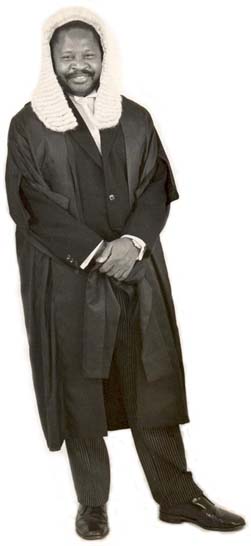
The First African Lawyer in Northern Rhodesia
In 1951, Mainza Chona applied to go to study at Makerere University in Kampala, Uganda. He was accepted. However, shortly before his departure to Makerere, his father died thus changing Chona’s plans. He turned down the scholarship mainly because as the oldest son, he was expected by tradition, to look after his mother and siblings.
Mainza Chona approached his former religious teacher, Father Patrick O’Brien, the principal at Chikuni mission to help him find a job. O’Brien recommended him to a Magistrate, Mr Harboard at the Judicial Department in Lusaka. Chona took the job.
He was given a typewriter to learn how to type. The clerk of the Court, a white man, never gave Chona any work at all, yet he received a monthly salary of £9. He taught himself how to type and during this time he wrote his novel Kabuca Uleta Tunji. After he completed his book, work was assigned to him. Chona believes that he was the first Form V graduate to join the Civil Service and be given a job as an African clerk/interpreter and typist. Most interpreters only had a Standard VI level of education.
Chona was later transferred to Judicial Headquarters in Livingstone. There too he worked as a clerk/interpreter but he was given work that was fulfilling. For four years he worked in this position. Under colonial rule, there was no hope of getting anything better.
To further his education, Chona applied to study Law at Gray’s Inn Law School in England . Initially there was opposition from the Chief Justice as he wanted to offer the scholarship to a senior citizen. In good time, this Chief Justice was transferred and another more lenient Chief Justice came. Without hesitation, Chona’s scholarship was granted.
It was in late 1955 that Chona departed for England. Together with Munalula Sikatana, a fellow countryman (elder brother to Mr Mundia Sikatana MP) they travelled by sea via Cape Town in South Africa to Southampton, England.
England fascinated Chona although he found it difficult to adapt to the way of life. Occasionally he was hungry and the cold winter weather was most unpleasant. The course too was hard. Despite all this, he was a determined studious student who took his studies seriously.
Chona too had a keen interest regarding Northern Rhodesia’s situation and he met fellow countrymen who were involved in the freedom struggle. However Chona kept aloof in political issues during his studies not allowing himself to lose sight of his objectives.